Search
Did you mean: William Cecil, Lord Burghley?
Remove Ads
Advertisement
Search Results
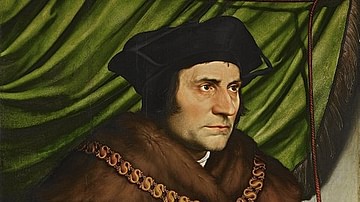
Image
Sir Thomas More as Lord Chancellor
A painting of Sir Thomas More as Lord Chancellor (in office 1530-2 CE) by Hans Holbein the Younger. Painted in 1530 CE. (Frick Collection, New York)

Definition
Simon Forman
Simon Forman (1552-1611) was an Elizabethan physician, astrologer, magician, and alchemist who lived and worked in both London and Wiltshire, England. He was unusual in that despite receiving no formal training in medicine or astrology, and...

Definition
Elizabethan Theatre
Elizabethan theatre, sometimes called English Renaissance theatre, refers to that style of performance plays which blossomed during the reign of Elizabeth I of England (r. 1558-1603) and which continued under her Stuart successors. Elizabethan...

Video
Lord Yama (Yamraja)
Yama is the lord of death in Hinduism, first recorded in the Vedas. Yama belongs to an early stratum of Indo-Iranian theology. In Vedic tradition Yama was considered to have been the first mortal who died and espied the way to the celestial...
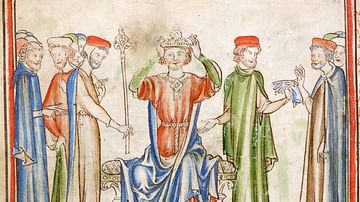
Definition
Harold Godwinson
Harold Godwinson (also spelt Godwineson) reigned briefly as King Harold II of England from January to October 1066 CE, the momentous year which witnessed the Norman conquest and end of 500 years of Anglo-Saxon rule. Harold had been, as the...

Video
Ganesha - The Lord Of Success
Ganesha is the best-known and most widely worship God in the Hingu religion. With the head of an elephant and a pot-bellied body of a human being the depiction of Ganesha is known worldwide. Known to bring success, knowledge, wisdom and wealth...
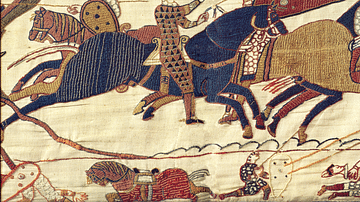
Definition
Odo of Bayeux
Odo of Bayeux (d. 1097 CE) was the bishop of Bayeux in Normandy and half-brother of William the Conqueror (r. 1066-1087 CE). After the Norman conquest of England in 1066 CE, Odo was given vast Anglo-Saxon estates and made, as the Earl of...
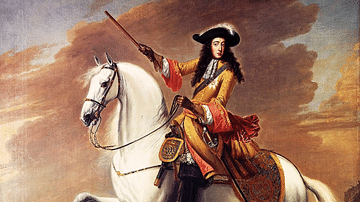
Definition
Glorious Revolution
The Glorious Revolution of November 1688 saw Protestant William of Orange (l. 1650-1702) invade England and take the throne of Catholic James II of England (r. 1685-1688). There were no battles, and William was invited by Parliament to become...
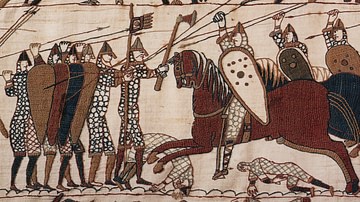
Definition
Battle of Hastings
The Battle of Hastings in south-east England on 14 October 1066 saw the defeat of the Anglo-Saxon king Harold II (r. Jan-Oct 1066) by the invading Norman army led by William, Duke of Normandy (reigned from 1035). After a day of heavy fighting...
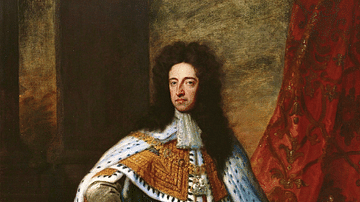
Image
Portrait of William III of England
A 1690 portrait by Godfrey Kneller of William III of England (aka William of Orange and William II of Scotland). Protestant William replaced James II of England in the Glorious Revolution of 1688. He ruled jointly with his wife Queen Mary...